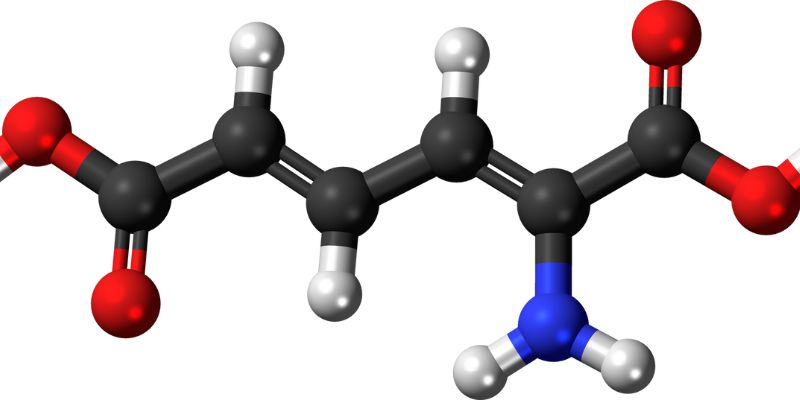The complex human body has a huge and unexplored domain of proteins. The roles and relevance of thousands of proteins that control vital body activities are unknown. Proteins perform several jobs in our bodies, from accelerating chemical processes to sending cell messages. They build life's complex machinery, yet many are "dark" or "unstudied" proteins.
This information gap has several causes. Some proteins perform specific jobs in buried cells, making studying difficult. Others are rare, making separation and analysis difficult. The challenge is complicated by the human proteome's complexity and variety. Understanding these mysterious proteins has major health and medical consequences.
These proteins may open new treatments, illuminate illness molecular mechanisms, and provide drug development targets. As we explore the unknown territories of biology, we realize the importance of closing the knowledge gap around these thousands of proteins, which could change medical science and our understanding of humanity.

Proteins Role in the Human Body
Human function relies on proteins, the building elements of life. They orchestrate several vital activities that sustain human survival. Proteins are the body's unsung heroes, performing several activities. They accelerate life-sustaining chemical processes like digestion and energy generation as catalysts.
Proteins send signals to control cellular activities and keep our bodies running smoothly. They support tissues, muscles, and organs, preserving the body's structure. Proteins also guard against intruders and transfer oxygen in circulation.
Despite scientific progress, protein complexity remains a barrier. We have learned much about these molecular workhorses, yet many are still dark or unstudied proteins. We know little about them since they live in secret parts of our cells and are in tiny amounts, making isolation and analysis difficult.

The Complex Puzzle of the Human Proteome
The human proteome is a complex puzzle with thousands of protein parts, each with its function. It highlights the intricacy of the human proteome and the difficulties scientists confront in deciphering this large and varied chemical environment, stressing the mystery and ramifications of our limited understanding of these odd proteins.
Humans need proteins for many activities, from accelerating biochemical events to supporting cells and organs. These molecular workhorses are essential to biology. The knowledge of the human proteome is still incomplete.
Diversity makes the human proteome complicated. Each protein has a distinct purpose, and the interconnections in biological systems are complex. Understanding these proteins' three-dimensional shapes, cellular locations, and dynamic functions is complicated.
Completely understanding the human proteome is a tremendous task. Researchers struggle to isolate, characterize, and understand each protein's biological purpose. The ultimate objective is to map the human proteome to illuminate these hidden proteins' activities and relationships.
What We Could Discover About Dark Proteins?
Dark proteins, those mysterious and unstudied molecular actors in the human body, have far-reaching importance. Though their details are unknown, dark proteins are important. They contain undiscovered knowledge about human biology that might change how we see and treat health issues. Unlike well-studied proteins, dark proteins may fill gaps in the understanding and open new medical research possibilities.
These unstudied proteins may have complex activities, contribute to disease progression, or lead to new treatments. Unlocking the dark proteome might reveal novel therapeutic targets, making our restricted knowledge particularly relevant to drug development.
It may elucidate illness molecular bases, enabling personalized therapy and precision medicine. Dark proteins may also illuminate cellular operations, signal transmission, and complex pathways. We may discover the missing components of the human proteome and our biological systems by studying these proteins.
The Techniques For Evaluating Dark Proteins
Dark proteins—elusive and poorly understood biological components—require a variety of tactics and novel approaches to solve. Despite hundreds of unstudied proteins, researchers use various methods to illuminate these mysterious molecules and improve our understanding of the human proteome.
However, dark proteins can potentially improve our understanding of human biology, leading to groundbreaking scientific discoveries. Like other proteins, they may have different activities, molecular interactions, and health and disease effects. However, solving their riddles requires dedication and method.
Cutting-edge technology can help unlock hidden protein mysteries. These include enhanced mass spectrometry, structural biology, and bioinformatics technologies for protein identification, characterization, and function. These cutting-edge methods map protein-protein interactions, revealing the roles of these unstudied proteins in the complex human proteome.
Knowledge of dark proteins also depends on collaborative research. These strange chemicals push scientists from different fields and research institutes to collaborate and exchange data. Collaboration helps the scientific community share resources and insights, accelerating molecular study.
How Proteome Science Is Changing Medicine?
A brighter future in medicine depends on understanding the human proteome, including thousands of undiscovered proteins. Understanding the human proteome is essential for medical advancement as we traverse the complex world of human biology. Everything from cellular activities to physiological reactions depends on proteins. There are still many proteins, yet many are still unknown.
Bridges in proteome knowledge affect illness diagnosis, therapy, and medication development. Unstudied proteins may enable molecular comprehension of numerous diseases and provide novel targets for therapeutics and precision medicine. Individualizing medicines based on proteomic profiles offers new healthcare frontiers.
In addition, proteome information can improve preventative medicine by predicting and preventing illnesses before they appear. Reduced sickness and healthcare expenses might alter healthcare with this proactive strategy.
Conclusion:
The enormous tapestry of human biology contains hundreds of unknown proteins. While we've made great gains in comprehending the human body's complicated circuitry, many molecular actors remain unstudied. The roles and activities of these mysterious proteins might change illness diagnosis, therapy, and how we see human health.
As academics and scientists explore the human proteome, the future is bright. Each discovery brings us closer to precision medicine, breakthrough medicines, and proactive healthcare. These black proteins are a reminder of the unfathomable secrets of the human body and that science always has more to learn, investigate, and wonder at.







